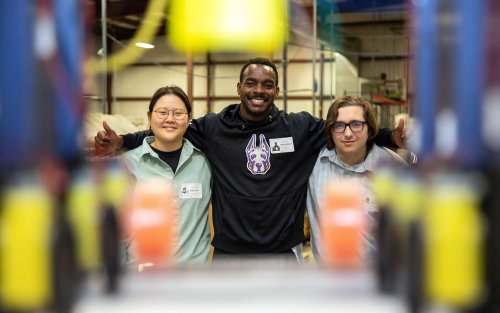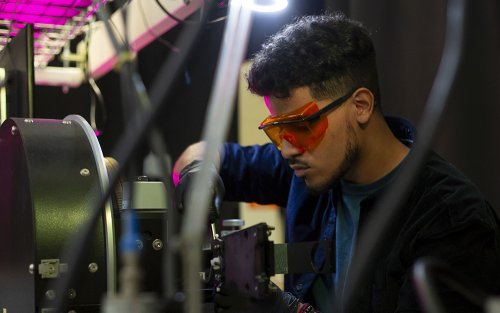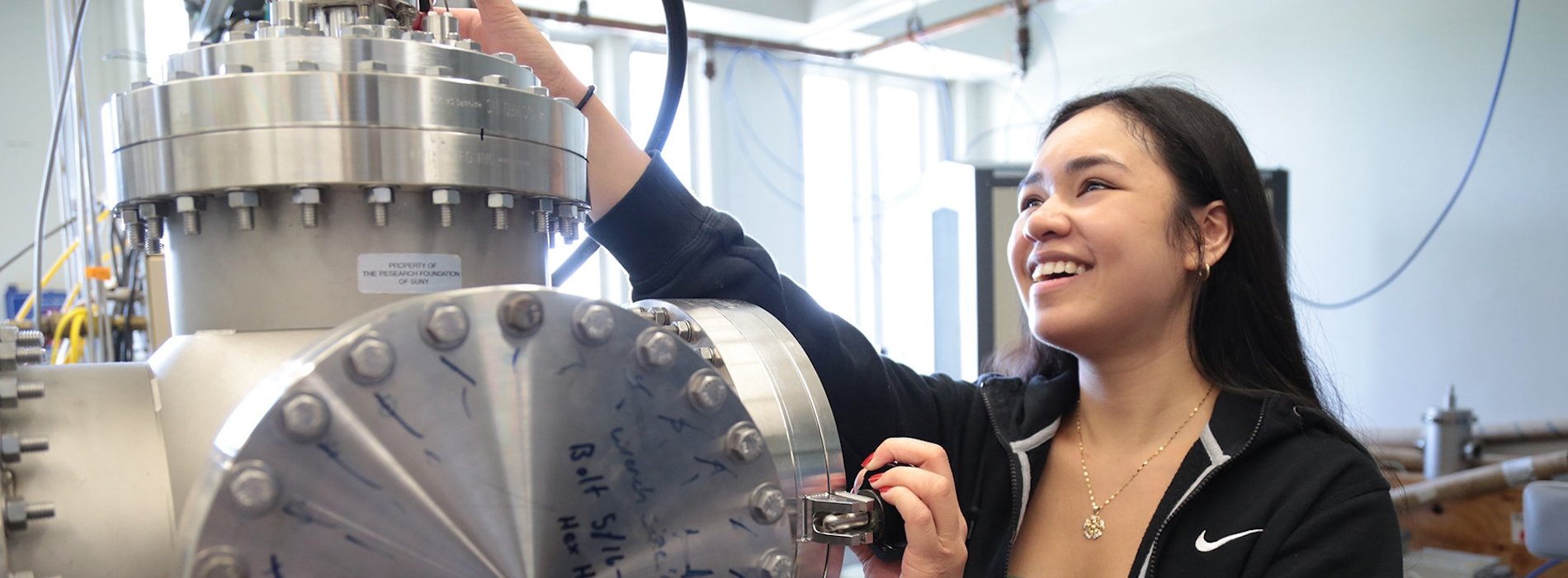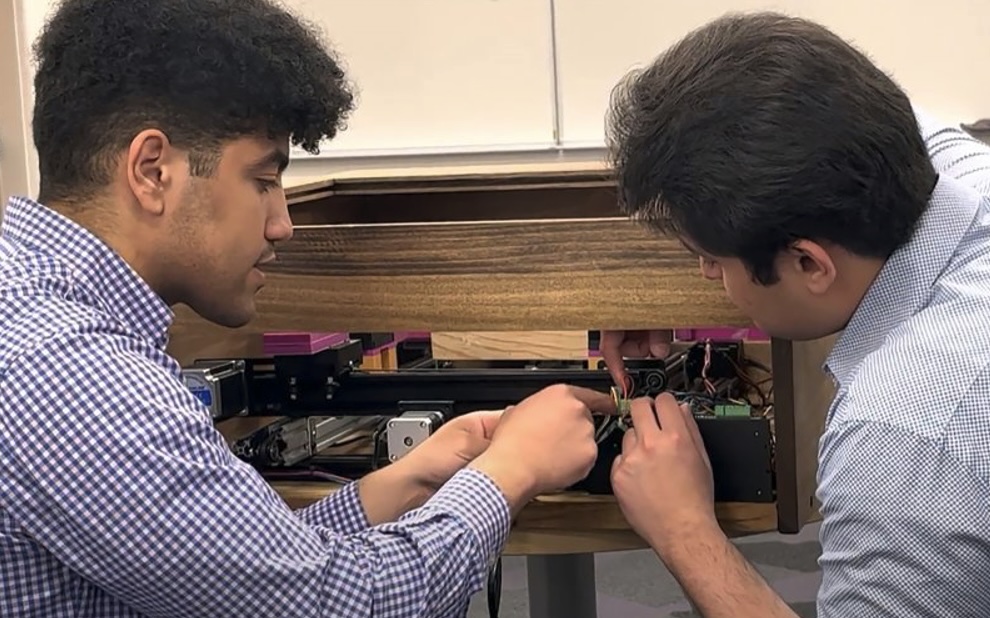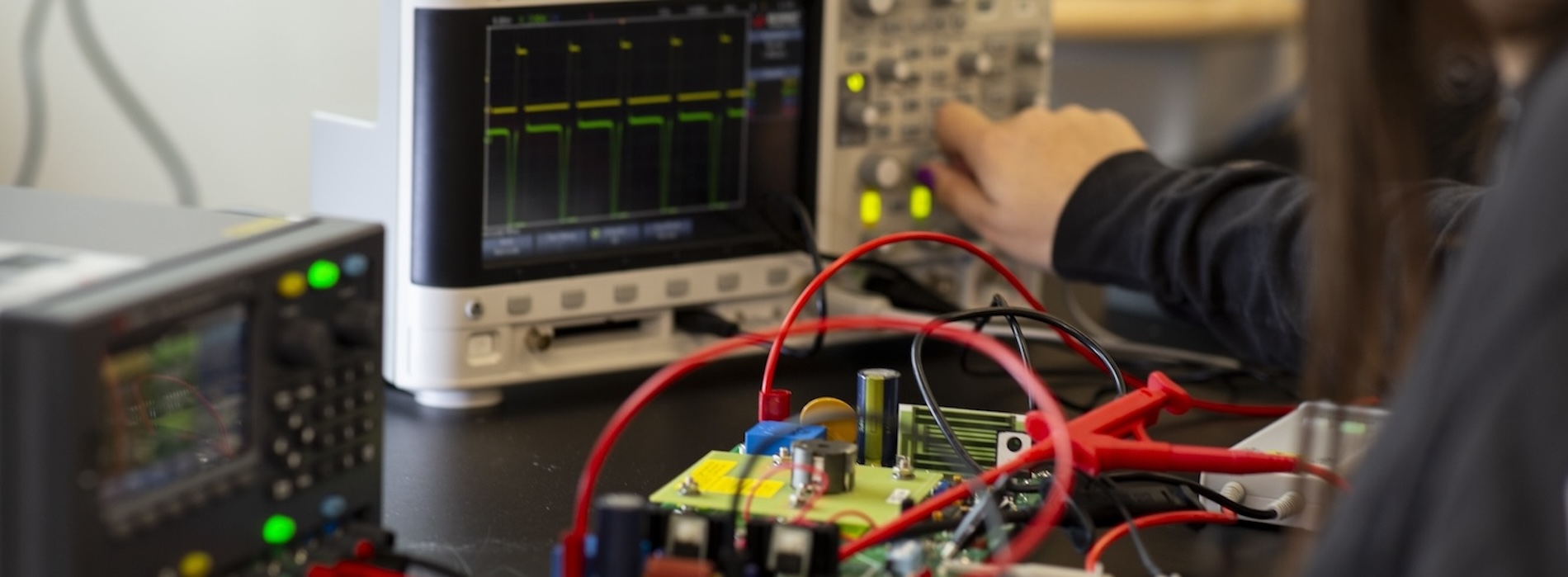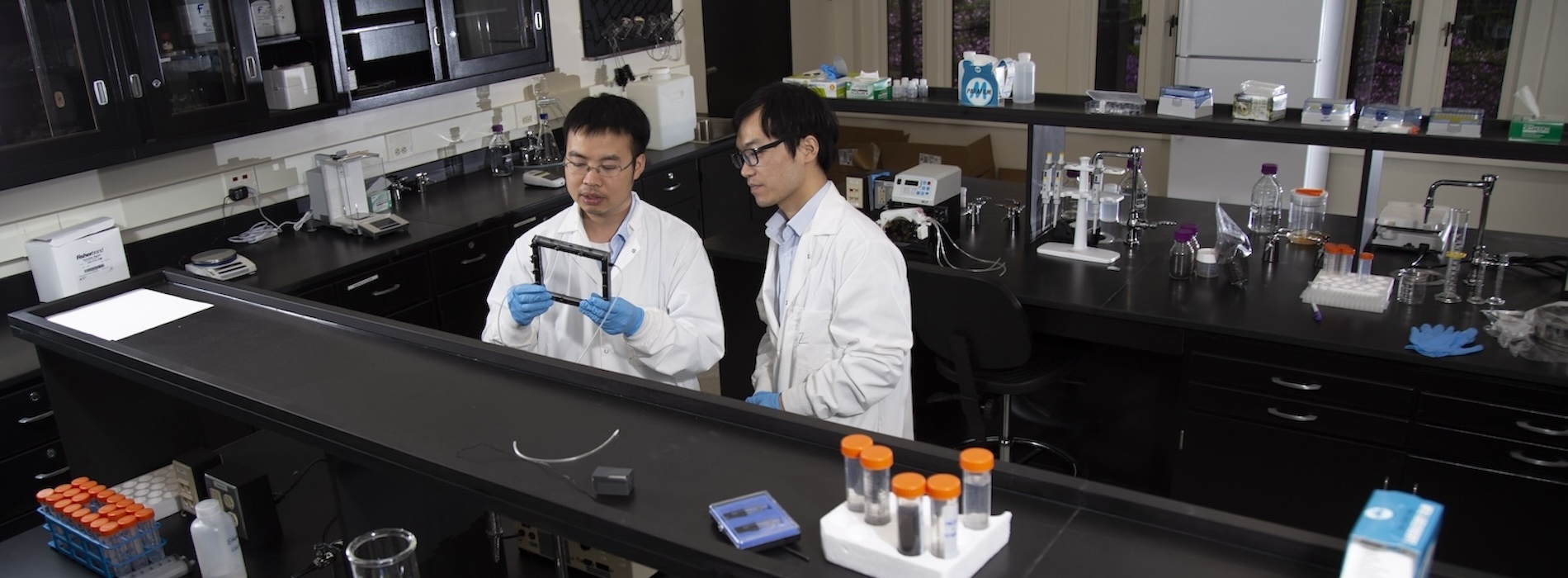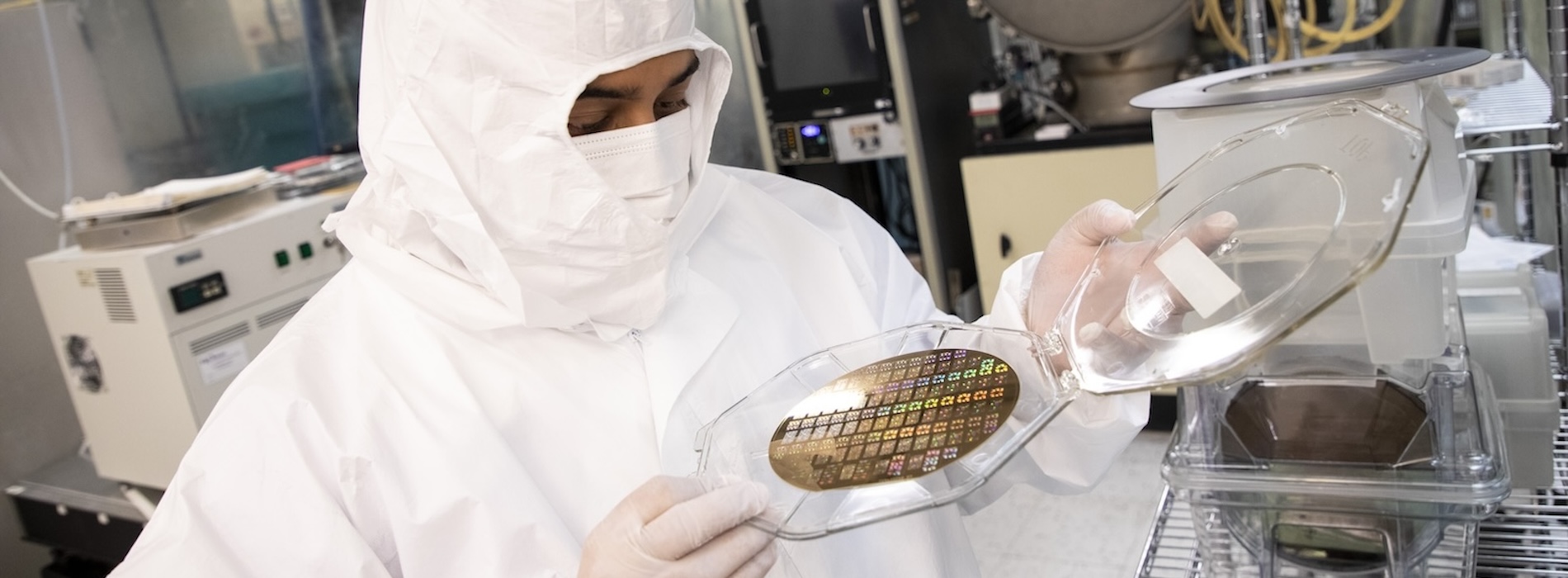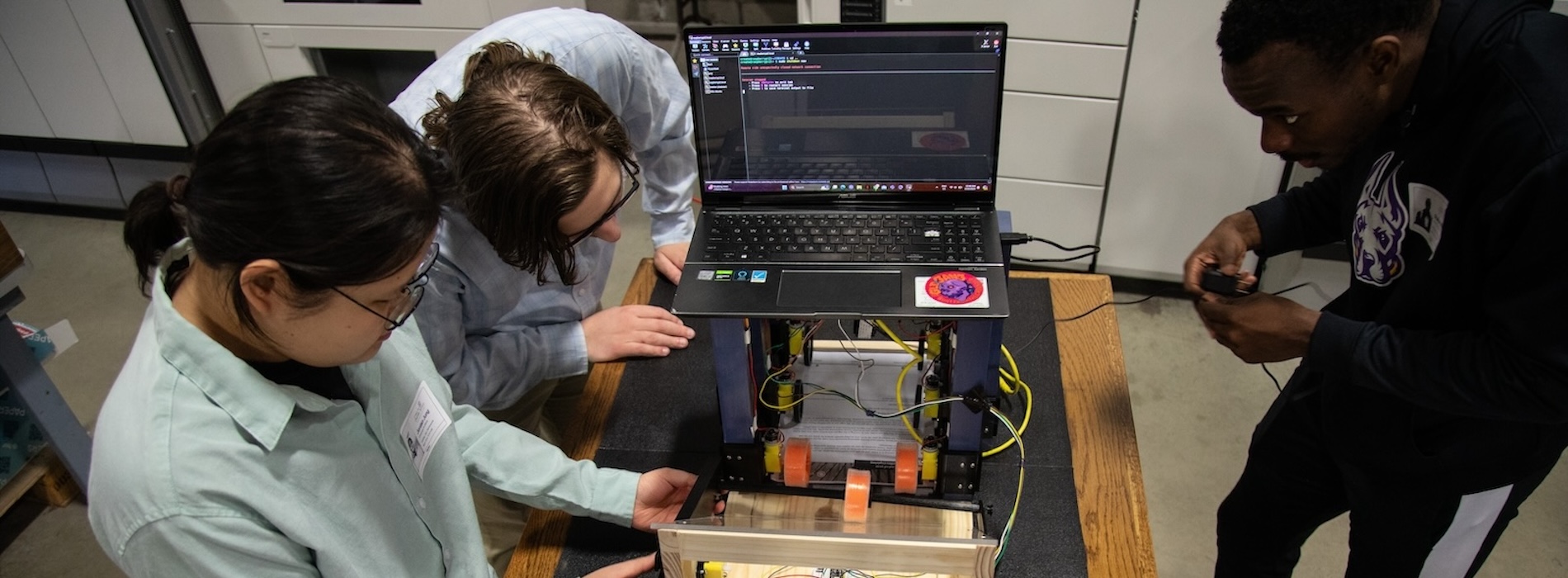The College of Nanotechnology, Science, and Engineering (CNSE) selects a diverse range of projects that represent a multitude of technologies and skills, while applying the fundamental concepts developed in our programs.
Capstone projects provide students with exposure to a breadth of different paths available with their engineering degree, as well as opportunities to engage passionately and commit to their own success. The partners include connections with corporate industry, academic research labs, community-service engineering and computer science projects, and team-based projects aimed at competitions.
Engineering Projects in Community Service (EPICS)
The University at Albany College of Nanotechnology, Science, and Engineering is a proud member of the Engineering Projects in Community Service (EPICS) University Consortium. This consortium is a network of more than 40 universities that share ideas and opportunities to improve engineering education through the implementation of project-based community engagement and experiential learning experiences.
We encourage non-profit and community organizations with high-impact projects to submit project ideas and reach out to discuss potential collaboration.
Award Winning Success Stories
Research teams at UAlbany are no strangers to success. Three of our capstone teams have successfully won $35,000 in prize money competing in the statewide New York Industries for the Disabled (NYSID) Cultivating Resources for Employment with Assistive Technology (CREATE) competition. The competition focuses on developing technology to help employ disabled workers.
Recent Projects
